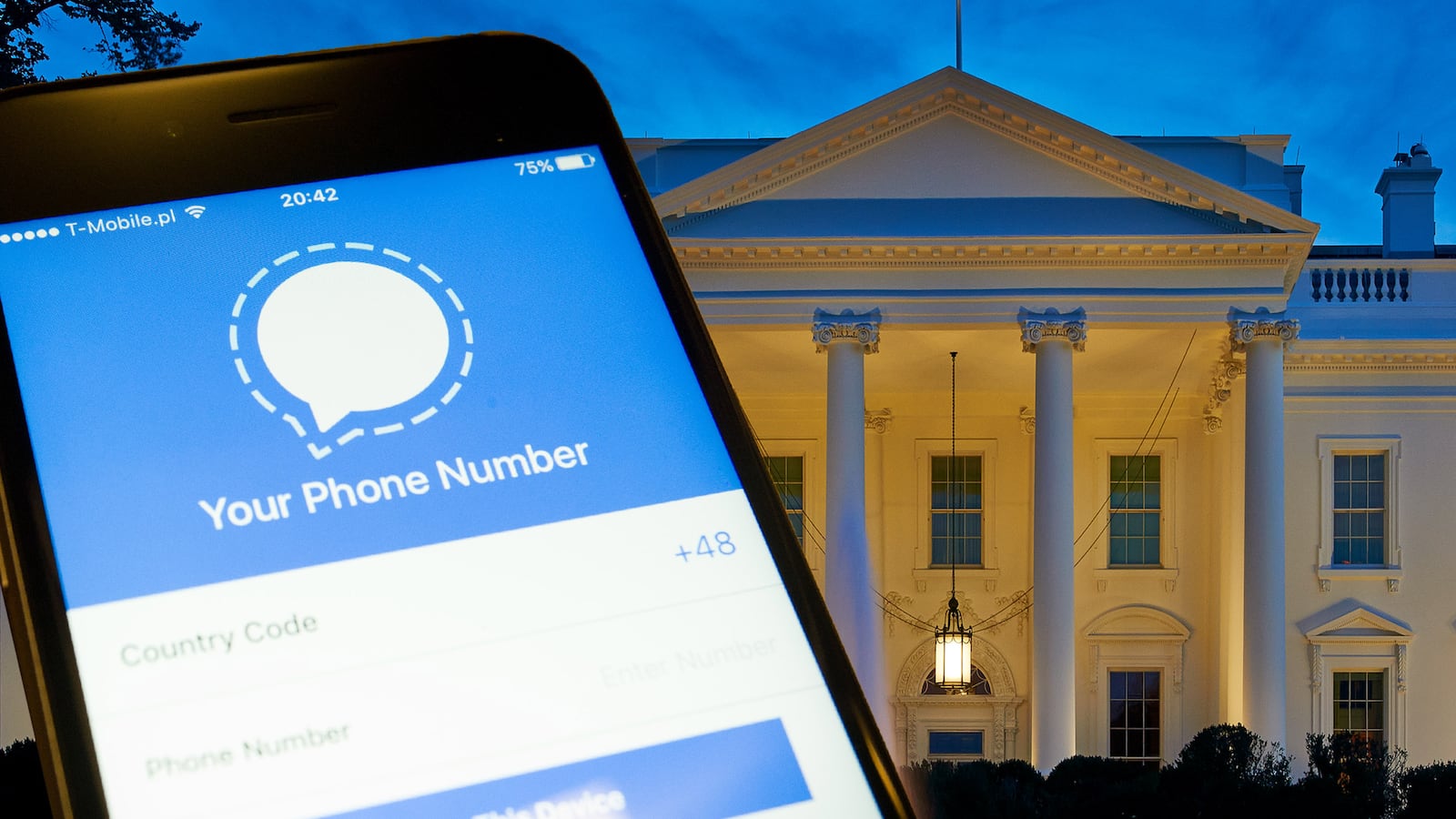An ethics watchdog group claims in a new lawsuit that White House staff are illegally hiding internal communications from public view through the use of encrypted messaging apps.
Citizens for Responsibility and Ethics in Washington filed a civil lawsuit in federal court against President Donald Trump and the Executive Office of the President on Thursday. The complaint claims, citing news reports, that West Wing officials use encrypted messaging apps such as Signal to communicate internally. Those apps automatically delete past messages, which would prevent them from being archived by the government as required by law, CREW said. The White House did not respond to a request for comment on the lawsuit.
“Reports that Trump administration officials are disregarding this [archiving] requirement—either by not following private e-mail protocol or by using encrypted messaging apps that prevent any kind of preservation—raise serious concerns that presidential records are at risk,” said Tom Blanton, director of George Washington University’s National Security Archive, who joined CREW as a plaintiff.
The Presidential Records Act mandates the preservation of internal communications in the White House and vice president’s office. Before the act, those records were considered the property of the president (or vice president).
Signal and Confide, another encrypted messaging app cited in the suit, automatically delete messages after a period of time selected by the apps’ users.
“This destruction occurs with no independent assessment by the message sender or recipient of whether the message constitutes a presidential record,” CREW said in its lawsuit. The group also claims the White House has no “policies or guidelines for preserving or maintaining” presidential records.
White House press secretary Sean Spicer has indeed attempted to limit the use of encrypted messaging apps by White House staffers.Spicer “explicitly warned staffers that using texting apps” that automatically delete messages “was a violation of the Presidential Records Act, according to multiple sources in the room,” Politico reported in February.
“The question is whether this practice is still going on and by who,” CREW spokesperson Jordan Libowitz said. “We believe White House does not have adequate policies in place” to prevent the use of potentially illegal messaging apps.
Prior CREW lawsuits against alleged violations of the Presidential Records Act have seen varied degrees of success. A judge in 2009 rejected the group’s allegations against former vice president Dick Cheney on the grounds that he had not intended to discard official records. A subsequent lawsuit against the Bush White House was settled after that administration left office.
Its new lawsuit also zeroes in on the president’s use of Twitter to communicate political and policy messaging. Though the White House has insisted that it is preserving the president’s tweets in accordance with archiving policies, CREW says the occasional deleted tweet raises questions about whether they are being properly preserved.
“In some instances, the deletions appear to be an attempt to avoid criticism over apparent conflicts of interest, such as a tweet concerning the President’s meeting with generals at his Mar-a-Lago residence,” the lawsuit notes.
What is not clear in CREW’s complaint is whether it will be able to show that the White House’s archiving practices have caused any real injury to the group, which it must to establish “standing” in the suit. Prior Justice Departments have cited lack of standing to argue against Presidential Records Act lawsuits, including CREW’s complaint against Cheney.
But rules governing standing in these types of suits have changed since then. Libowitz said CREW has suffered what is called “informational injury.” A federal court established that type of injury in 2013, ruling that lawsuits can be brought on behalf of plaintiffs that have been denied information to which they should legally have access, even if no monetary or other damages can be shown.
CREW is confident that that development “allows us to sue,” Libowitz said.






